It's Wildlife Trauma Season
This Trauma season, please help us reduce the pressure on our vet team and end suffering by learning how to save wildlife.
What to Do When You Find Sick, Injured & Orphaned Wildlife
Please call Currumbin Wildlife Hospital if you see any sick, injured or orphaned native wildlife on 07 5534 0813. For your own safety, please do not handle:
- Snakes
- Bats
- Adult Koalas
- Adult Kangaroos
- Wallabies
- Birds of Prey
- Lace Monitors
...or any other dangerous animals.
Quick Tips for Wildlife Rescue
- Native animals can die very quickly from stress, so please keep environment as calm as possible.
- Do not offer any food or water as feeding an animal in shock can be fatal.
- If you find a Kangaroo, Wallaby, Possum, Koala or Wombat that has been injured, make sure you check the pouch (if safe to do so).
What to Do When You Find Sick, Injured or Orphaned Koalas
Koalas are having a tough time in the wild due to vehicle strikes, dog attacks, chlamydia, habitat destruction and natural disasters.
If you see any sick, injured or orphaned Koalas, you can call Wildcare Australia Inc Hotline - 07 5527 2444.
Please remember to:
- Keep dogs indoors at night and restrain your dog if you know a Koala is in your backyard
- It is important to slow down on the roads at dawn and dusk
- Please take notice of 'Koalas Cross Here' signs while driving
- Signs of chlamydia in Koalas: conjunctivitis eyes &/or a wet bottom, always report illness.
Wildlife in Our Waterways
Hook & plastic injury admissions soar at Currumbin Wildlife Hospital during spring and summer. Waterbirds and turtles are the main targets as they often ingest hooks and plastics or suffer from fishing line entanglement.
Simple actions you can take to reduce the risk of injuring a wild water animal:
- Dispose of your rubbish correctly.
- Don’t feed birds while fishing as it encourages them to hang around and increases their chances of being caught in lines or swallowing hooks.
- Don’t cast your line near birds.
- Safely pick up discarded fishing hooks and lines when you see them.
- If wildlife is hooked or entangled, don’t cut the line.
If you'd like to support our vet team during the busy time of trauma season, please consider donating.
